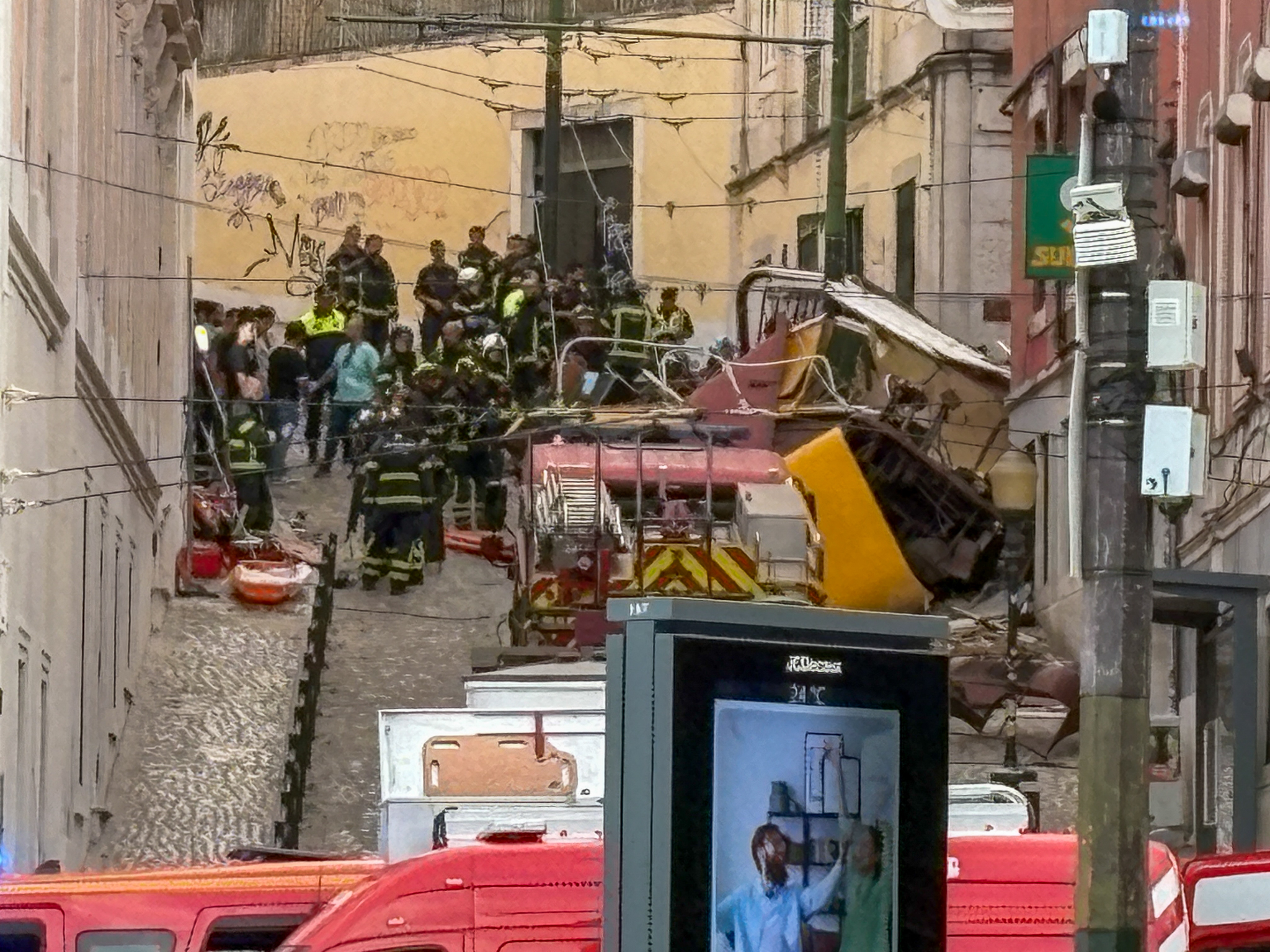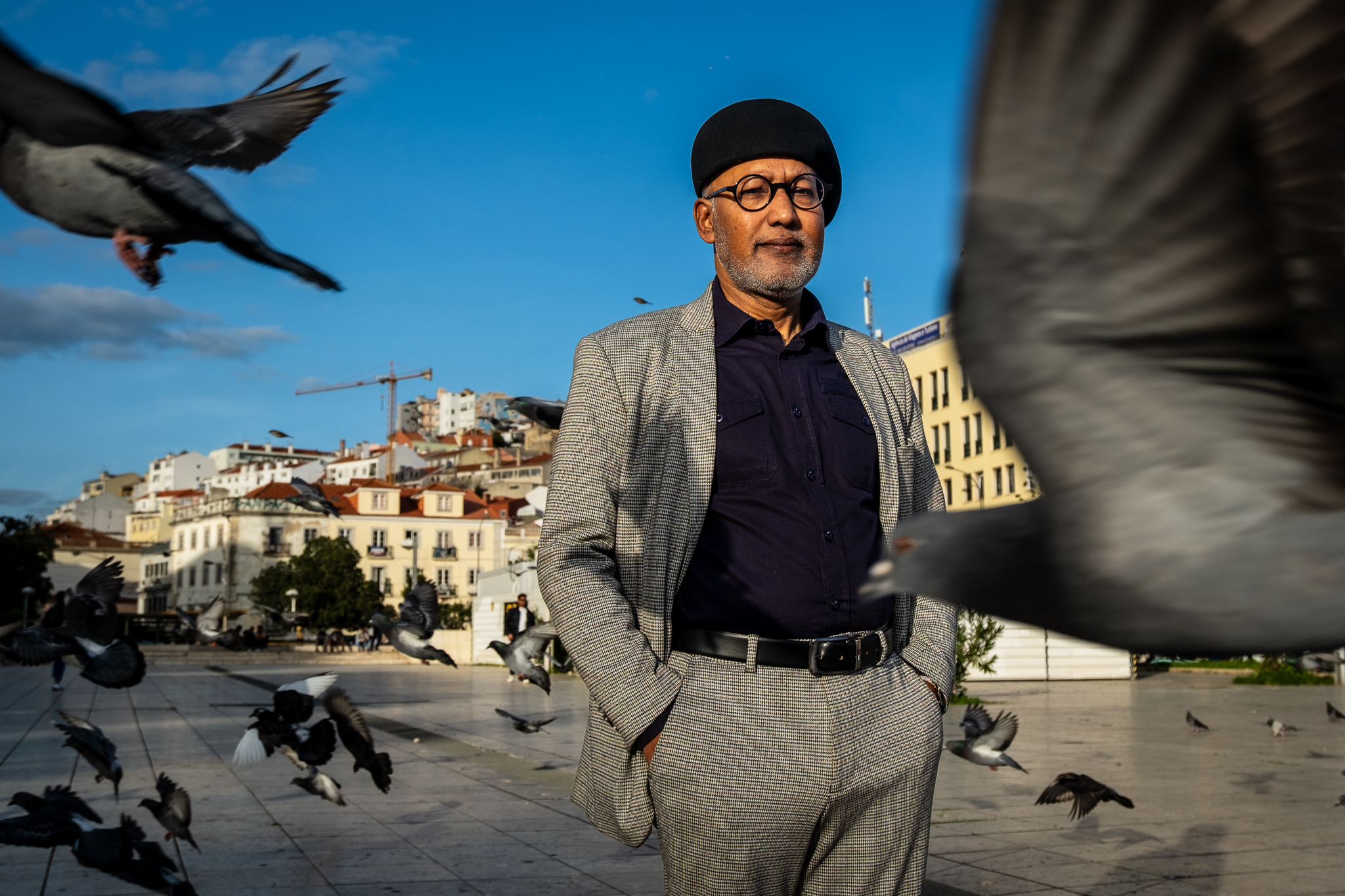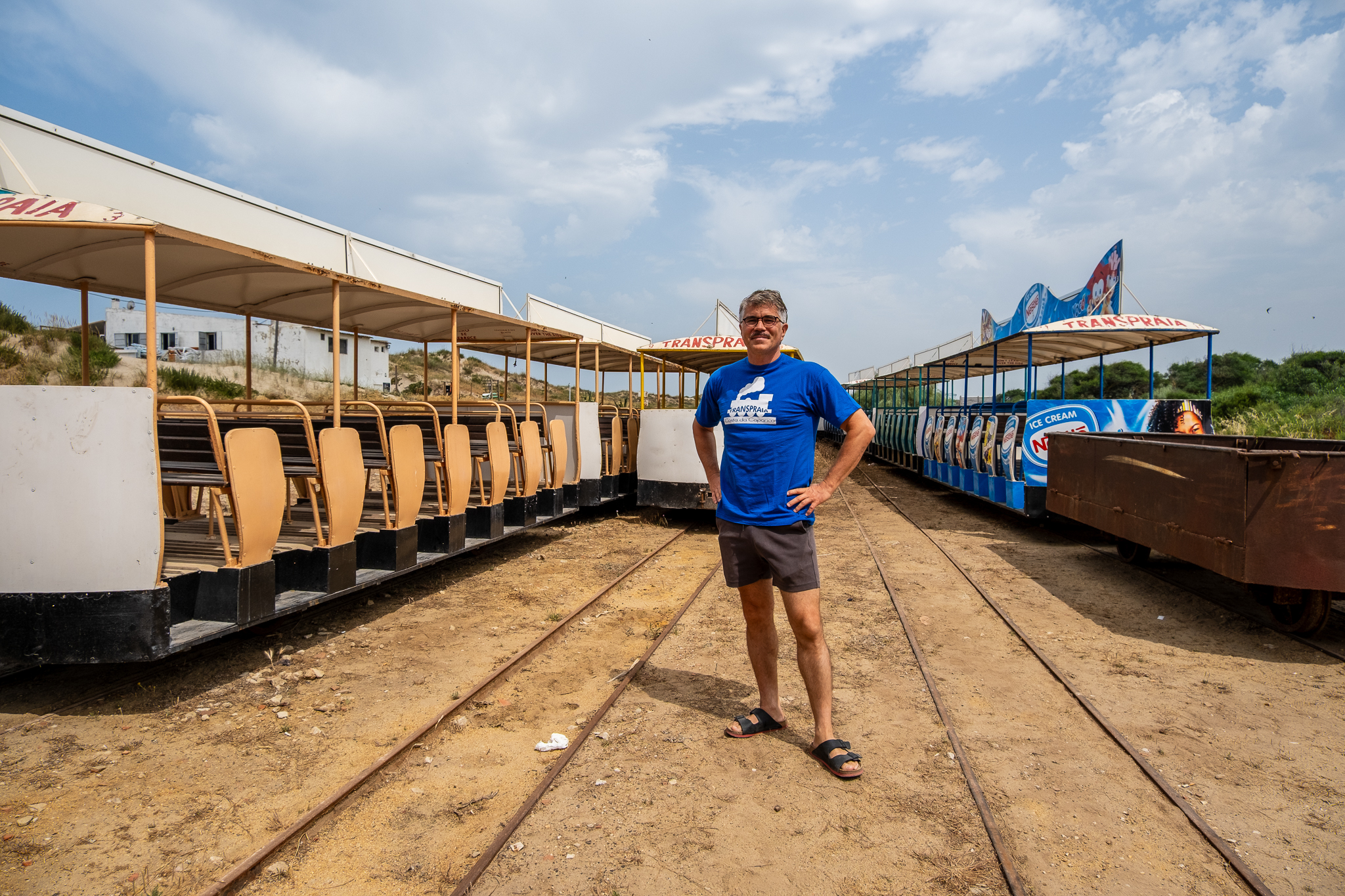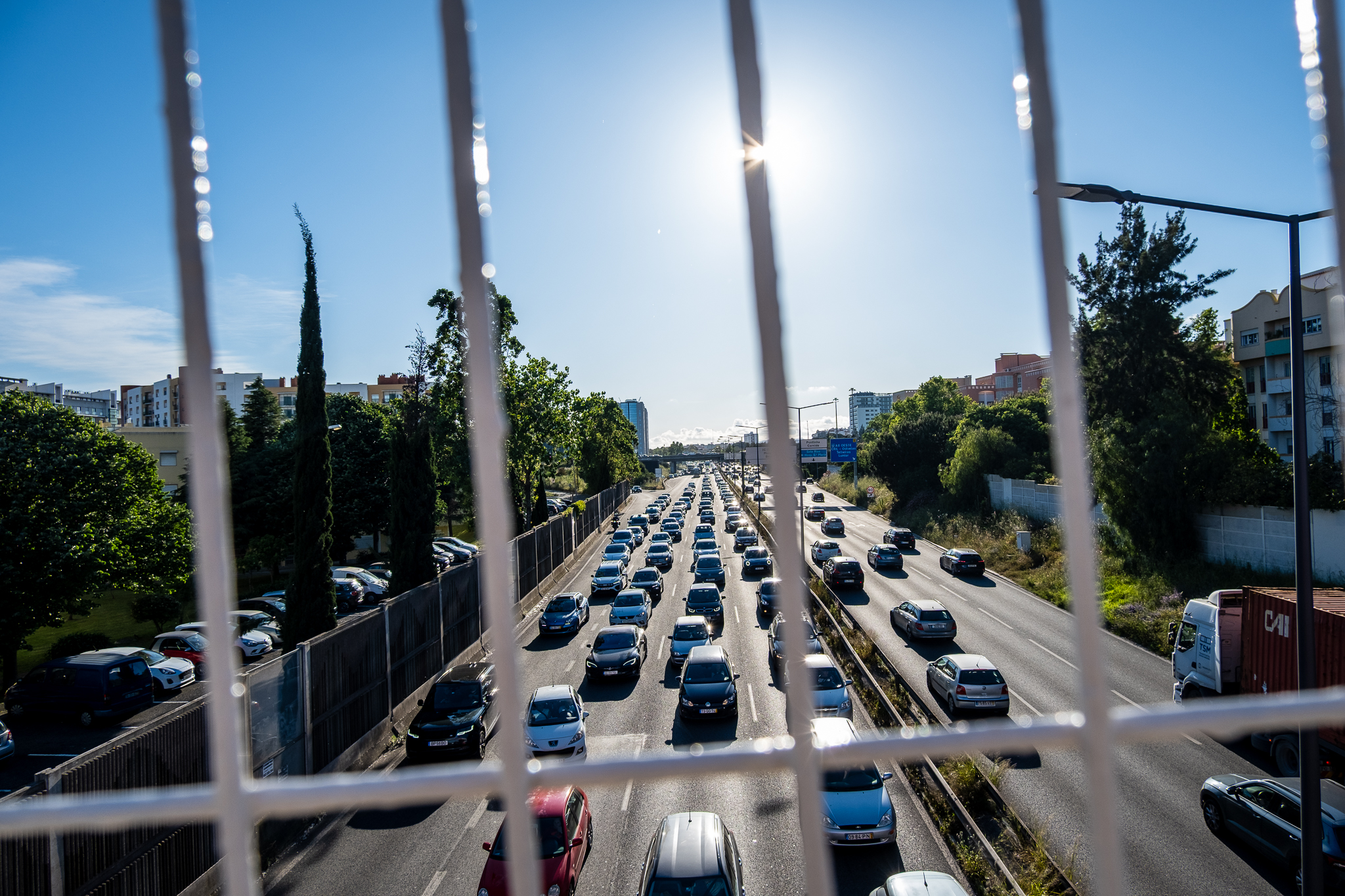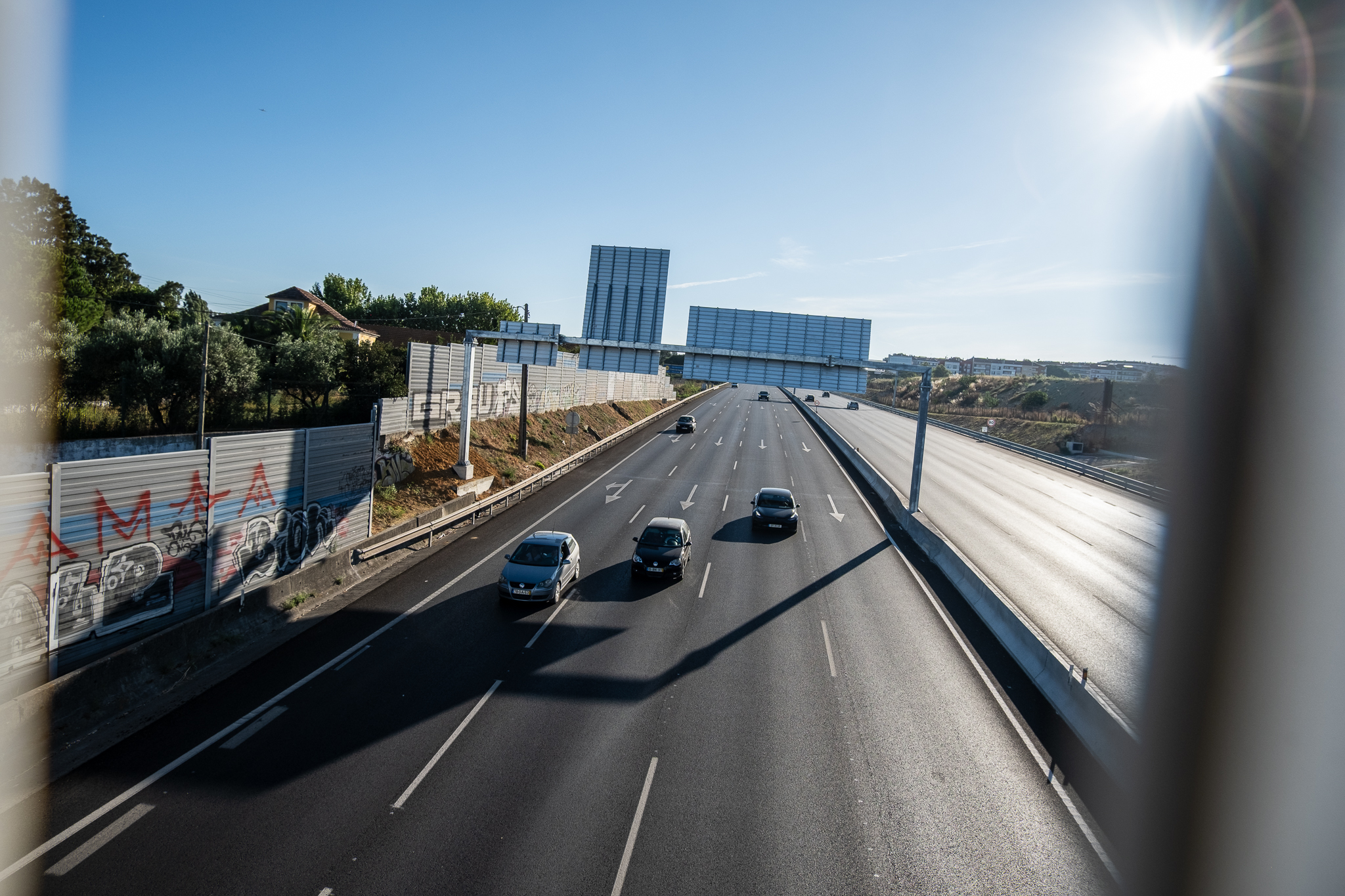Chronicle.
The parish of Penha de França is in the center of Lisbon, and yet still so far from good conditions for cycling. Amid the exhaust fumes and double-parked cars, there are very few bicycle parks - even though more and more people are cycling...

I have just left my house, in an area that is next to the parish of Arroios, but which is already in the parish of Penha de França. I have lived here for about six years, and although there is not a single bike lane in this parish, I can clearly see the differences from a few years ago in terms of new ways of getting around, mentalities and personal prioritiesToday I leave my house and as soon as I turn a corner, I immediately come across one, two, three, four, five people on bicycles. six, if you count a child sitting in a car seat in tow of his mother -, on their way to their errands, appointments, and workplaces. I'm not making anything up - these people exist. They live here. Simply, I always have my antennae up in the air picking up what to me has an important meaning: sustainable mobility and alternative to the automobile.
I scrutinize the street with a closer look and immediately count bicycles that are not moving at that momentOne attached to a traffic sign; two more of a couple, together, attached to another sign; another attached to an electricity pole; yet another, this one a cargo bicycle, attached to a lamp; and already on another nearby street, I finally glimpse a bicycle park where there are only two bicycles, because the rest of the available space is taken up by motorcycles.
"I can well see the differences from a few years ago in terms of new ways of getting around, mentalities and personal priorities: today I leave home and as soon as I turn a corner, I immediately run into one, two, three, four, five people on bicycles - six, if you count a child sitting in a car seat in tow of his mother."
I continue on my way to the library, where I often commute for a change from my home office. Today I came by bicycle, and I encounter the same difficulty as always - I arrive here and there is no formal bicycle parking place at the door. My recourse is the same as always: a padlock around a traffic sign. Aware that I shouldn't do it, but plagued by this recurring thought: there being space, and with a school next door, why isn't there a bike park in front of the library?
A certain segment of the population living here will tell you that one of the biggest problems the parish has is the lack of car parking. I prefer to focus on other problems that for me - and for many other people I know - are more urgent, a priority and unquestionably important: the lack of green spaces and the lack of a focus on sustainable mobility in active cycling.
The parish of Penha de França is one of the most populated in the city of Lisbon. That's 28,354 peopleaccording to the 2021 Census, in an area of 2.71 square kilometers. At the same time, it is one of the parishes in Lisbon with less green area per square meterper inhabitant (an average ratio of less than 1 m²/inhabitant; worse, only Campo de Ourique). And then, it is also the parish with one of the worst performances in terms of conditions for soft mobility. Besides not existing a single bike lane in a vast area - that goes from Rua Morais Soares to Alto de S. João, Forte de Santa Apolónia, Av. General Roçadas and even Sapadores, along the Bairro das Novas Nações -, or at least zones of coexistence of car and bike traffic, with a 30 km/h limit, it is a parish where those who want to use the bicycle as a means of transportation find very few secure parking solutions. Otherwise, let's see: in the neighboring parish of Arroios, the ratio of bike parking spaces available is 30 spaces per 1000 inhabitants; in Penha de França, the ratio is 7 seats per 1000 inhabitants.

Stairs, torments, poles and railings
The solution for most people who already use or intend to use the bicycle as a means of transportation, whether they commute within the parish or move in and out of it, is therefore to resort most of the time to the omnipresent traffic signs and poles (situations that besides not guaranteeing safety, are not exactly legal); or, to prevent situations of theft or vandalism, take the bike home. The latter, which is usually the safest solution, is by no means the most practical or easiest for many people. we are talking about houses and apartments of modest dimensions, generally without elevator, and where not always the coexistence with neighbors is conducive to allow the occupation of the common areas of the buildings (if there is enough space) with bicycle parking.
But I will give you concrete examples, because these people, for whom the difficulty of parking a simple bicycle is an obstacle to their mobility aspirations, exist, they have names and faces.
Leonor Nobre Alves lives near Paiva Couceiro Square. He works in the area of phytopharmaceuticals and has long made plans to get around the city by bike, but this hasn't happened yet. The main obstacle? The fact that he hasn't yet figured out the best way to store his bike safely. "I was very pleased to see the network of bike lanes springing up and community bikes popping up. Unfortunately there are still no GIRA stations in Penha de França. Several times I thought I wanted to buy a bicycle, and always ended up being discouraged because I had nowhere to store it.“ The option of going up and down stairs with the bicycle does not appeal to you because it is not practical. "Outside the house there is nowhere to store it, and when commuting by bike there is still nowhere to park it either. With regret, I've been keeping this plan on hold..."
Already Dinis Correia, web designer e developerwho has been commuting daily by bicycle for several years now, has managed to overcome this difficulty. But not as she would have liked to, since with a small apartment, the option is to leave the bicycle outside. Living on top of the hill, in the Praça António Sardinha area, it was with envy that "watching the installation of bike parks in the neighboring parish, Arroios. Here I still saw the appearance of a structure, at the top of Rua Heliodoro Salgado, but it was removed to make way for a building's garage (today the paintings on the ground that signaled the park are still visible, the structures having been removed)". There is only one nearby park, however, it is permanently occupied by motorcycles, which leaves little space and confidence for bicycle users - with motor vehicles coming and going, the possibility of damage to bicycles increases. "Without parks, I'm forced to attach my bike to the railing of some stairs on the street. I would have traffic signals as an option, but with the street having parallel parking spaces, I would probably end up blocking cars from entering."
Ana Matiasbiologist and resident in the Alto de São João area, is faced with a more difficult situation. Having moved a few months ago from the Mouraria neighbourhood, where she kept her electric bicycle at an EMEL BiciPark (at the Chão do Loureiro market), she now finds herself unable to use the vehicle she bought, as it is heavier than a conventional bicycle and therefore difficult to take home. And she doesn't dare leave her bicycle on the street, attached to a pole; in case of theft, it would be a considerable loss. So while she doesn't find a solution, or while the Junta de Freguesia and the municipality don't invest seriously in the conditions and infrastructures for those who want to use the bicycle, Ana has to keep her bicycle parked far away from where she lives and, thus, ends up not using it. But Ana is not satisfied. She's been busy making contacts and has launched a petition with the aim of getting a bicycle hangar for long-term secure parking in Alto de S. João. However, these efforts have come up against numerous barriers and difficulties.
Easy math: in place of 1 car fit 10 bicycles
I too, who chose many years ago not to use a car in Lisbon, am constantly faced with the obstacle of lack of bicycle parking. I just need to walk down the Rua Morais Soares, which I ride or cycle many times, to realize that in this entire street - which is one of the busiest in the city - there is not a single place to park a bicycle. I'm not counting, obviously, posts or handrails. When you hear someone talking about mobility costs, explain this: there isn't a single parking lot on this very busy street to park a bicycle and go, for example, to make a purchase or get a coffee. In any case, it is perfectly possible to do it by car, either by parking legally or by double-parking, to the detriment of the fluidity of public transportation.
"When you hear someone talking about mobility costs, explain this: there isn't a single parking lot on this very busy street to park a bicycle and go, for example, to make a purchase or drink a coffee. In any case, it is perfectly possible to do so by car, either by parking legally or by double-parking, to the detriment of the fluidity of public transport."
Another example: the other day I gathered several people in my house who have in common the fact that they use the bicycle as a mode of transport. Just as, on other occasions, I have brought together friends who normally travel by car or public transport. This time, I found myself very concerned about articulating parking solutions. Parking in the parish of Penha de França is difficult, but when guests come by car, I know that they only need to drive around the surrounding streets a couple of times and soon they will find a place to park their car. I can even give a tip or two for those who don't know the area well. It's not a drama. But with friends who were coming by bike, I felt almost obliged to make excuses, as if it was my responsibility to make sure that I provided them with safe parking for their vehicles. In my mind the drama was already beginning to unfold: What if they stopped liking me or visiting me because I don't have a bike park next to my house?
You see, the great and precious advantage of the bicycle is that it takes us exactly to the door of our destination. More efficient than any public transportation, which only with a lot of luck will have a stop or station in front of where we live, with a bicycle we can, at any time of the day or night, get exactly where we want. And, given that the space occupied by a car can fit about 10 bicycles, practically in any corner it is possible to have a park that guarantees at least half a dozen places for bicycles - and without harming the pedestrians.
"As a citizen, taxpayer, I know I can park a car on a street near my house. As a citizen, taxpayer, if I want to park my bike, I better think twice and buy a lightweight model that I can carry up stairs."

At this point, many may ask: but if those who drive a car have no right to a doorstep, why do bicycles need to have a doorstep? Well, for one thing, we cannot put vehicles that have different externalities on an equal footing: a bicycle is not a polluting vehicle and does not occupy the same space as a car. And second, here at home we have a car with a resident badge which, yes, guarantees us a place close to home without paying a single cent, when there are vacant spaces (and when there are no vacant spaces we have to realize that they don't exist because the number of cars is disproportionate to the available space, so there are more cars than the streets can hold). As a citizen, a taxpayer, I know I can park a car on a street near my house. As a citizen, a taxpayer, if I want to park my bike, I better think twice and buy a lightweight model that I can carry up the stairs.
In terms of the space dedicated to car parking and bicycle parking there is clearly a gigantic imbalance factor. And this is mainly due to the imposition of size: a car proudly takes up space and always claims more. Bicycles are being pushed around wherever possible, seen as a recreational vehicle when for so many people they are increasingly becoming a way to get around quickly and cheaply. It is high time to change the chipfor all reasons and more: health, environmental, and, in these times of economic turbulence we are already experiencing, and which will certainly worsen, financial.
Improving the community we live in
But all that I can write here, as interesting as it may be, is of little use if there are no subsequent actions. If it doesn't translate into an effort to improve mobility policies in the parish and, inherently, in the entire city.
"Bicycles, those, get stuck where possible, seen as a recreational vehicle when they are increasingly, for so many people, the way to make more or less short trips quickly and cheaply."
United around the will to improve the parish in the last year, an informal group of residents from Penha de França has been dedicated to make an exhaustive survey of parking needs, besides an evaluation of what already exists ("Is it located in an accessible and suitable location? What problems/challenges does it present that cause the structure to be used or not used?"), with suggestions for: i) creation of new parks where they are needed, with mirroring of the information in the Cycling City platformand ii) improvement of existing parks.
I am part of that voluntary group, with no extra motivation other than being able to park my bike close to home, without having to go up and down stairs, carrying it, every time I need to go out. And to make that same facility possible for all the people who commute by bicycle in the parish.
We have been communicating with the Parish Council to make mobility a priority around here, and to pay particular attention to an issue that is increasingly close to the hearts of a segment of the population - young and old, or else Penha de França will become entangled in a city form unsuitable for those who seek to live and work here. In recent years, this parish has seen the settlement of new populations, including many young people from other parts of the city, cultural and artistic groups, commercial and restaurant spaces, for whom sustainable mobility is absolutely part of the equation to have quality of life. It is necessary that at the municipal and local level there is a sprint to accompany these social movements.
"I never tire of repeating it: for every person using a bicycle there is one less car driving around or taking up parking space. We all win."
Because we all win the more conditions there are for safe cycling: everyone! People who want to use bicycles as a means of transportation win, because they have practical, well-located, and safe parking; people who want to walk win, because they no longer have bicycles on the sidewalks stuck to posts and signs, which can eventually block or worsen accessibility; and those who, for one reason or another, want/need to use the car to commute, win, because I never tire of repeating it: for every person using a bicycle there is one less car circulating or taking up parking space. Win-win.
The signature that usually accompanies the parish of Penha de França is "from the river to the hill". So our challenge - from this group of residents committed to sustainable mobility - to the local authority, is that it should increasingly be "by bike, from the river to the hill". If it's up to us, it will be.
Laura Alves is co-author of the book The Glorious Bicycle and the documentary project Maria Bicycle. He is currently on the board of MUBi - Association for Urban Mobility on Bicycles. Laura writes according to the latest Orthographic Agreement.

